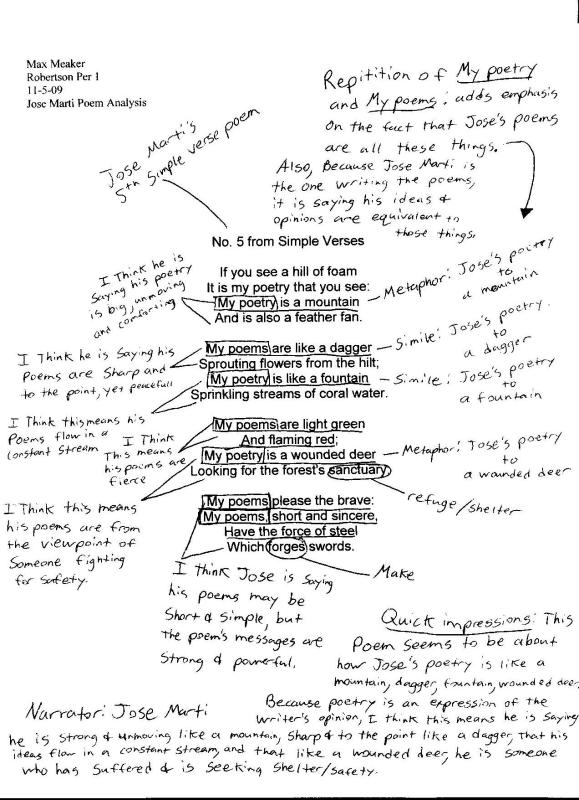Poetry Devices
Task 1: Define each of the following terms. Include an example for those terms with a star next to them. (3 points)
- Alliteration*:
- Allusion:
- Diction:
- Connotation vs. Denotation:
- Hyperbole*:
- Imagery*:
- Irony:
- Metaphor*:
- Motif:
- Onomatopoeia*:
- Personification*:
- Repetition:
- Rhyme*:
- Rhythm:
- Simile*:
- Symbol:
- Theme:
- Tone:
examples of tone: straightforward,
understated, approving, proud, disliking, harsh, acerbic, angry,
confident, energetic, ironic, mocking, bitter, grim, cynical,
interested, sympathetic, pitiful, detached, cold, uninterested,
disinterested, apathetic, impartial, objective, humorous, playful,
flippant, childish, child-like, tranquil, peaceful, subdued, sad, upset,
depressed, afraid, fearful, panicked, wistful, nostalgic,
sentimental, solemn, serious, somber, apologetic, rebellious, anxious,
thoughtful, dreamy, excited, exhilarated, exuberant, happy, contented,
joyful, skeptical, urgent, commanding, demanding, condescending,
arrogant, lofty, dramatic, scornful, bold, provocative, seductive
ALSO: What’s the difference between a narrative poem and a lyrical poem?
Task 2: Complete the poetry analysis worksheet to learn how poets use some of these devices. (3 points)
Task 3: Write your own poem (or poems) that uses at least one simile, one metaphor, and one personification. (4 points)

No comments:
Post a Comment